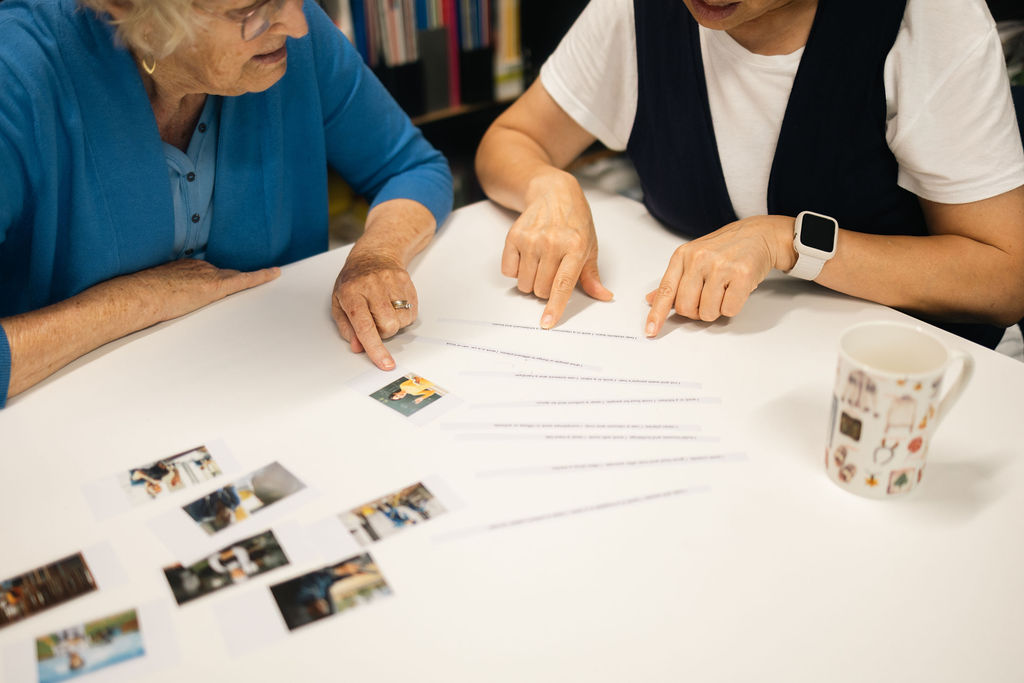Nancy Rounthwaite’s learners want to learn how to live and work successfully in New Zealand.
They want to speak English that will open doors and help them feel part of their communities.
Some of Nancy’s learners cannot read and write in their first language; others are highly-qualified professionals.
To meet their needs, Nancy has a flexible teaching style. She’ll teach grammar if she’s asked about a particular sentence construction, “but I can tell they find it boring” and mostly they learn and talk about everyday issues.
Every Wednesday for the last ten years, in a voluntary capacity, Nancy has hosted a women-only group in her Hamilton home. “For two hours they speak nothing but English and the subjects we’ve covered over the years – gangs, childbirth, cancer, menopause, rape and abuse – you name it, we’ve discussed it.”
On Thursdays, Nancy travels into the city centre to take a mixed-level group.
They don’t always stick to the lesson plan, but Nancy puts effort into planning the sessions.
“I have these flashes of brilliance in the middle of the night,” she says.
The first thing Nancy tells her learners is that it’s okay to make mistakes. “I’ve had people too shy to speak. They may have come from a culture where it’s frowned upon to get things wrong in the classroom. But once they have permission to make mistakes, they’re usually away.”
It also helps that Nancy is quick to laugh at her own mistakes.
“I like to say I don’t let lack of language stand in the way of a conversation,” she says.
And she’s had some good ones. A discussion about breast cancer led to a woman finding lumps in her breast and the subsequent surgery probably saved her life. “If people trust you enough to ask about something, then they must want you to talk about it,” Nancy says.
I like to say I don’t let lack of language stand in the way of a conversation.
Humour is also an important part of learning. One day Nancy dressed in gumboots, overalls, jewellery and tiara and announced she was off to see the Queen.
“They said ‘you can’t wear that. Take off the boots, take off the overalls!’ Then they talked about appropriate dress for different occasions, like going to the supermarket or to a job interview.”
Nancy has been engaged in both voluntary and professional work for English Language Partners for about 20 years, and has taught about 100 learners.
“I used to do one-to-one teaching but I prefer classes. They’re a lot of fun. I have learnt so much, about festivals, celebrations and rituals, about food.”
She gets learners to record their language progress in a simple tickbox style form she designed herself. Her system is now available for all tutors to use. “It’s an ‘I can do’ style covering different situations, and learners can measure their progress stage by stage.” She says it works well and helps build confidence.
It all started back in the mid-90s because she had to get a certificate in adult teaching to teach CPR to community groups for the Heart Foundation.
“I’d also been working with a Korean family from our church, and I realised I was actually teaching English, so when I saw an ad in the paper calling for volunteer home tutors, and because I had the certificate, I signed up.”
It seems Nancy has a bit of a knack. “I have a good ear for understanding accents and I’m quite good at reading body language. I can tell when my learners don’t understand something even when they say they do.”
It gives Nancy satisfaction to see learners confident enough to secure paid employment. “I’ve had people start their own business – a laundromat, others have bought a dairy, one’s now working in a florist, another in a bookshop.
In 2010, Nancy received a Hamilton City Council Civic Award for the service she’s given to the local community through her work with English Language Partners.
Writer: Alison Robertson
Want to volunteer to teach English?











.png)






